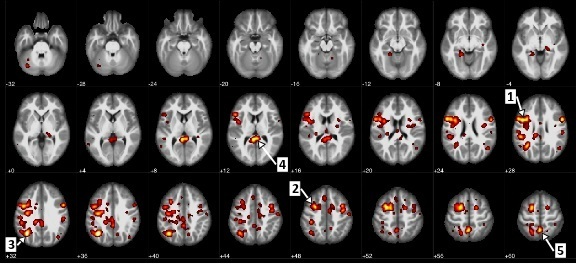About cookies on this site Our websites require some cookies to function properly (required). In addition, other cookies may be used with your consent to analyze site usage, improve the user experience and for advertising. For more information, please review your options. By visiting our website, you agree to our processing of information as described in IBM’sprivacy statement. To provide a smooth navigation, your cookie preferences will be shared across the IBM web domains listed here.
Artificial Intelligence
How AI and Machine Learning are Aiding Schizophrenia Research
July 21, 2017 | Written by: Dr. Guillermo Cecchi and Irina Rish
Categorized: Artificial Intelligence | Machine Learning
Share this post:
In the U.S. about 20 percent of adults suffer from a mental health condition, ranging from depression to bipolar disorder to schizophrenia, and about half of those with severe psychiatric disorders receive no treatment. While early identification, diagnosis, and treatment for patients with psychosis tends to mean improved outcomes, there continues to be significant barriers in achieving this. For schizophrenia, there is no medical testing that can provide an absolute diagnosis; this can mean significant delay before a symptomatic person is successfully diagnosed.

A computer model of the human brain, a “brain template.”
Earlier this year, IBM scientists collaborated with researchers at the University of Alberta and the IBM Alberta Centre for Advanced Studies (CAS) to publish new research regarding the use of AI and machine learning algorithms to predict instances of schizophrenia with a 74 percent accuracy. The research also shows a further capability to predict the severity of specific symptoms in schizophrenia patients – something that was not possible before. Using AI and machine learning, ‘computational psychiatry’ can be used to help clinicians more quickly assess – and therefore treat – patients with schizophrenia.
Computational psychiatry provides physicians with tools that enable them to objectively assess patients where most approaches had been subjective up until that point. In this schizophrenia research, we have learned that powerful technology can be used to predict the likelihood of a previously-unseen patient having schizophrenia. For the first time, clinicians could be able to quantitatively determine the severity of common symptoms and even identify and measure the progression of the disease, as well as the effectiveness of treatment.
This kind of innovative collaboration is just one example of the work being done between IBM and the University of Alberta through the IBM Alberta Centre for Advanced Studies. For more than a decade, the Centre’s unique public/private approach to research has become an example at a global level of how teaming world-class scientists and researchers can drive greater discovery and progression of disruptive technologies to address some of our greatest challenges.
As part of the ongoing relationship, research teams will continue to investigate areas and connections in the brain that hold significant links to schizophrenia, and also explore ways to extend these techniques to other psychiatric disorders, such as depression or post-traumatic stress disorder.
IBM has always recognized that investment in research and development is an important driver in solving some of our greatest global health problems, and this research is indicative of that commitment. It is a real example of innovation that matters.

Dr. Guillermo Cecchi
Principal Research Staff Member, Computational Neuroscience, IBM Research
More Artificial Intelligence stories
The 3 Beachheads of AI
(Part 2 in a Series) We have been partnering with and assisting clients on their data needs and strategies for years. It’s clear that data and AI are two-sides of the same coin; in fact, this understanding spawned the AI Ladder concept. We’ve developed skills training in the areas of data science and machine learning; […]
IBM Melds Data Science, Business Intelligence on the Cloud
As enterprises turn to artificial intelligence (AI) to beef up business performance and drive competitive advantage, IBM is working to make analytics, data science and machine learning – the core of AI – more accessible and easy for any organization, large or small, via the cloud. It’s no surprise that large organizations understand the value […]
Minestar Taps AI to Refine Oil & Gas Bidding in Canada
Minestar casts a wide net across the Canadian oil & gas and oil sands industry. That’s because it covers just about every aspect from mining and petrochemicals, to power generation and other sectors, as well. So when the energy industry began to drive down costs in recent years, Minestar, which is known as an engineering, […]





























